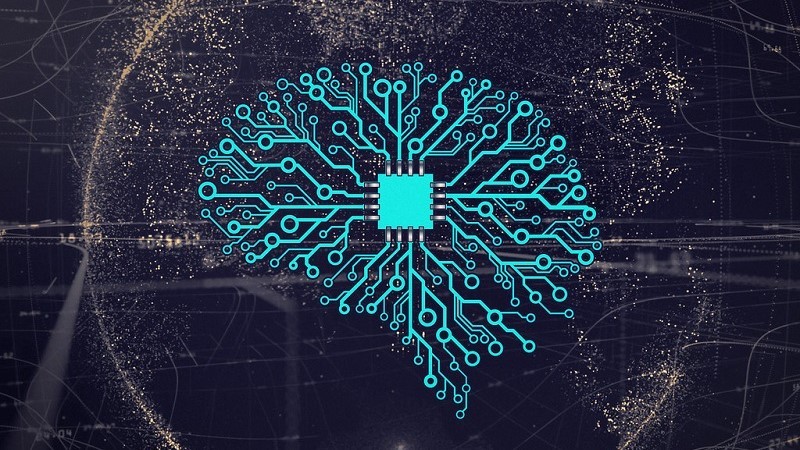

AI is everywhere.
Google uses AI to make sure that any email sent to a Gmail account is authentic. Similarly, it’s not programming but AI that makes suggestions for the service’s Smart Reply.
Music recommendations on Spotify and even fraud protection also rely on AI in order to assess user behaviour and take appropriate action.
On the one hand playing music that – behaviourally – the user may like. On the other analysing buyer habits, average spend, location and a raft of other metrics to determine if a purchase is legitimate.
The impressive thing is that all these things are happening in the background with the AI making countless decisions for hundreds of thousands of people, all in the blink of an eye.
For the vast majority, this all goes unnoticed and everything is perceived merely as a marvel of modern technology.
This is a fair assessment albeit a simplistic one. But some of those same people believe that the technology powering their Amazon Echo is the zenith of human engineering.
Admittedly it’s very useful to ask Alexa what the weather forecast is for the day or to learn that April 9th is National Unicorn Day. No really.
It’s undeniably clever and hugely satisfying when you can control everything from your Xbox to your ceiling lights with a few voice commands directed at a simple AI.
Except for a lot of this isn’t AI at all.
AI is only part of the systems that increasingly govern our world. AI is the ability to acquire and apply knowledge, machine learning is the acquisition of knowledge or skill to increase accuracy.
Essentially AI will use the acquired knowledge in order to increase the chances of success whereas machine learning doesn’t care about success, only increasing accuracy. Essentially it learns from data. An AI will attempt to solve problems by making decisions.
The big difference is an AI will develop systems to mimic humans in order to respond to evolving circumstances. Machine learning creates self-learning algorithms.
The difference is, AI seeks to serve by achieving successful outcomes. Machine learning is pre-occupied with the consumption of data in order to amass knowledge.
The application of that knowledge or its outcomes are irrelevant.
Machine learning is arguably the driving force that AI is built on. It’s a phenomenally powerful data mining tool that continually improves in an effort to deliver accurate outcomes. Even if those outcomes aren’t necessarily what was asked for.
Google’s search algorithms work in this way. It collates all the relevant information available about your search query (and you) and predicts what you’re looking for.

It is unapologetically binary. It has provided you with the results and doesn’t care at all if it’s what you’re looking for.
The bigger the data set the more powerful machine learning becomes. Its ability to cross-reference any likely outcomes against a vast knowledge base to ensure accuracy.
This is the reason why your smart speaker can tell you how many seconds are in a year or which Pokemon a Charmander evolves into.
Machine learning has allowed machines to understand semantic search, voice commands and then – more significantly – the ability to talk back in a way that emulates human speech.
The ability to answer questions, sing a song or tell a terrible joke is all made possible by the machine’s ability to deep mine data, codify it and recall it when asked to do so.
Machine learning – or deep learning as it’s become known – has the power to influence our world in ways even the most prolific science fiction writer couldn’t have predicted.
Some of those innovations are already creeping into the mainstream. Tesla’s autopilot can predict and react to changing conditions on the roads. That technology is expected to improve significantly over the next couple of years as more and more manufacturers invest.
It’s believed that machine learning could assist medical professionals in carrying out diagnoses and even detecting the likelihood of suicide in a patient experiencing distress or mental health issues.
This ability to compile huge amounts of data in order to make decisions has tremendous potential. For the most part, however, the machine learning we come into contact with is tremendously limited.
It tends to do one thing exceptionally well and everything else terribly. To the extent that you start to question your purchase decisions.
But as the algorithms that drive the technology improves, so too will the user experience.
However, there is a downside to machines having access to such a vast repository of information.
Or – more to the point – who has access to that codified knowledge.

Truth be told – Google, Facebook, Amazon and the other major players don’t need machine learning to know everything about us.
They’ve been gathering data on users for years without the need for deep learning.
However, that data can be put to good use by others, effectively eroding privacy, leaving society trapped in some kind of Orwellian nightmare.
But this is purely speculative as privacy seems to be the hot button topic for governments across the Western Hemisphere.
Although, it’s not necessarily the governments that could misuse the data in the first place.
Machine learning has transformed the way in which we live our lives. In many ways it has enriched it. It has allowed us to become more informed than at any other point of history. When you consider the ways in which the technology can be applied it’s also quite evident that we’re only just getting started.
While machine learning may get to a point where it drives AI to conclude we’re the problem and unleashes armies of killer robots on its hapless creators, we’re not there yet.
And until we can manufacture said robots, we’re probably quite safe.
KDC Resource is a dedicated technical and engineering recruiter. If you're looking for a new role in cyber security you can register your details by clicking here. Alternatively, if you have roles you'd like support filling then get in touch with us today.
